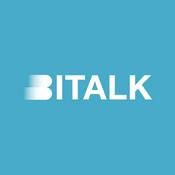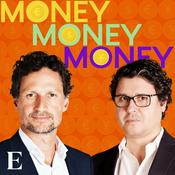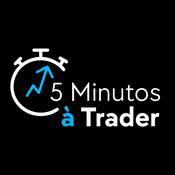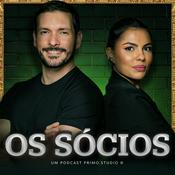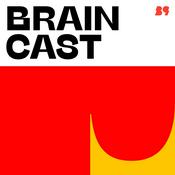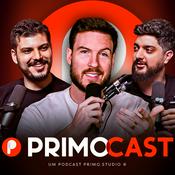335 episódios
- Same sentence. Different gestures. Totally different message.
Your body and the subconscious signals it sends decide whether people find you credible – and it happens in just 10 seconds.
In this episode, Mark Bowden, ranked the World’s #1 Communication Keynote Speaker and Body Language Professional, explains the body language rules that shape how the world sees you. You'll learn how to use your hands to build trust, the signals that undermine your message, and why "just be natural" is terrible advice and what to do instead.
Topics discussed:
The truth about first impressions (00:45)
Why body language matters more than words (02:03)
The dos and don’ts of making a good first impression (05:51)
How the brain interprets facial expressions and body language (12:11)
The “$5 million” example (16:43)
What changes when you communicate virtually (22:27)
A confidence strategy you can use immediately (26:04)
Why over preparation backfires (29:45)
The presentation shift that makes you more effective (32:45)
How leaders manage “risk” and discomfort (35:08)
Authenticity vs. performance (37:40)
Why modern leaders are always on display (42:05)
Connect with Mark Bowden:
https://truthplane.com/
This episode was produced by Podcast Boutique https://www.podcastboutique.com (https://podcastboutique.com) - Micromanager or “easy” boss. Most leaders I meet feel stuck in the middle – they are trying not to be controlling, but also don’t want to be that nice boss people don’t respect.
As a result, team communication feels messy and exhausting. Ashley Herd, author of The Manager Method and a former HR boss at McKinsey and Yum Brands, says the solution is cozy joggers leadership – where leaders set clear expectations, provide support, but let people get on with their work.
Her three-step framework, Cozy Joggers Leadership approach and practical tips will help you make small changes that have a big impact on how you delegate, communicate with your team, and lead.
Topics discussed:
How oversized sweatpants leaders are made (00:38)
Finding the middle ground: cozy joggers leadership (02:13)
The complexity of modern leadership (05:00)
The Pause-Consider-Act management method (09:28)
The leadership shift that builds true confidence (15:31)
What most people miss when delegating (18:06)
How to balance empathy with expectations (22:40)
Imposter phenomenon and how leaders work through it (25:48)
How small actions can make a big impact (31:33)
Why context needs to come before content (33:22)
Connect with Ashley Herd:
https://www.managermethod.com/
Grab her book, The Manager Method, and the free companion guide:
https://www.managermethod.com/book
Want to work with Oliver and become a top 1% communicator? Join the Speak Like a CEO Academy and sign up for the FREE webinar! https://www.speaklikeaceo.academy/
This episode was produced by Podcast Boutique https://www.podcastboutique.com (https://podcastboutique.com) - When you’re a leader, your words don’t stop with the room. Compliment someone in a meeting? Their partner hears about it that night. Express concern about a deadline? It travels through the team as “we’re in trouble.” Get visibly angry? People are still talking about it weeks later.
Adam Galinsky calls this the Leader Amplification Effect, and it helps explain why some leaders inspire while others infuriate — often without realizing it. In this episode, he shares how leaders can build the skill of inspiration through small habits and clear, simple communication. You'll learn actionable strategies that empower your team, help your message land, and make people want to follow your lead.
Topics discussed:
Are leaders born or made? (00:48)
Inspire vs. infuriate: the leadership continuum (03:09)
How leadership impact spreads beyond work (06:15)
Nonverbal signals: the banana story (09:25)
The simple act that builds inspiration (12:09)
3 roles of inspiring leaders (15:07)
How visual language makes leaders more persuasive (19:30)
Why repetition matters and the cost of undercommunicating (22:51)
Why leaders must show authentic passion (26:50)
What it means to truly empower people (33:18)
How to take accountability without shame (37:21)
One action you can take to become more inspirational (39:24)
Take Adam’s Am I Inspiring? Quiz:
https://adamgalinsky.com/assessment/
Get your 50 Presentation Hacks from Oliver: https://eoipsocommunications.com/newsletter/
Want to work with Oliver and become a top 1% communicator? Join the Speak Like a CEO Academy and sign up for the FREE webinar! https://www.speaklikeaceo.academy/
This episode was produced by Podcast Boutique https://www.podcastboutique.com (https://podcastboutique.com) - AI isn't going to run your company – but not for the reason you think. Business thrives on innovation and adaptability, which requires more than logic. That's where storytelling comes in.
Angus Fletcher, Professor of Story Science and author of Primal Intelligence, joins host Oliver Aust to explain why storytelling is a form of intelligence that helps us plan, act and innovate in ways AI never could. He breaks down how narrative thinking guides our decisions, how intuition really works, and how to strengthen them both.
You’ll also learn the “three stories” every business is running (whether you realize it or not), and what happens when they’re out of alignment.
Topics discussed:
Storytelling as a form of intelligence (00:51)
Why AI struggles in dynamic, changing environments (03:14)
Narrative thinking vs. logical thinking (05:47)
The mission behind his research and book, Primal Intelligence (07:38)
How intuition really works and how to develop it (11:12)
3 stories every business runs on: strategic, operational, external (14:33)
When “marketing problems” are actually alignment problems (17:26)
Leaders vs. managers and why “safe” communication fails (21:18)
The AI spam loop and why humans are tuning out (27:31)
External vs. internal storytelling structure (30:42)
The trap of “defining the problem” (35:56)
Where to start if you want to become a better storyteller (38:23)
Download your copy of the 21 Storytelling Frameworks (https://eo-ipso-comms.kit.com/21-storytelling-frameworks-with-oliver) guide:
https://eo-ipso-comms.kit.com/21-storytelling-frameworks-with-oliver
Want to work with Oliver and become a top 1% communicator? Join the Speak Like a CEO Academy and sign up for the FREE webinar! https://www.speaklikeaceo.academy/
This episode was produced by Podcast Boutique https://www.podcastboutique.com (https://podcastboutique.com) - Download your copy of the 21 Storytelling Frameworks guide:
https://eo-ipso-comms.kit.com/21-storytelling-frameworks-with-oliver
Have you ever been told to "fake it till you make it" or “just be yourself"? It's no surprise this common advice doesn't work – it focuses on acting confident instead of becoming confident.
This episode breaks down Oliver’s three-step method that helps you build true confidence so you’re not overthinking or over-preparing for every presentation. You'll learn why you get so nervous in the first place, the common mistake that causes people to freeze, and how to calm your anxiety so you can speak confidently under pressure as a leader.
Topics discussed:
Bad public speaking advice (01:22)
How perfectionism fuels imposter syndrome (03:33)
Limiting beliefs that hold you back (04:04)
The foundation of being a confident speaker (05:07)
The 3-step BMW method (06:37)
Why scripts don’t work and what to do instead (09:02)
Strategies that build true confidence (10:56)
Want to work with Oliver and become a top 1% communicator? Join the Speak Like a CEO Academy and sign up for the FREE webinar! https://www.speaklikeaceo.academy/
This episode was produced by Podcast Boutique https://www.podcastboutique.com
Mais podcasts de Negócios
Podcasts em tendência em Negócios
Sobre SPEAK LIKE A CEO
Speak Like a CEO is the podcast for ambitious leaders who want to become top 1% communicators - and scale themselves and their businesses by mastering the ultimate leadership skill: communication.
Hosted by Oliver Aust - one of the world’s leading voices on leadership communication, bestselling author of Unignorable and Message Machine, and trusted advisor to Fortune 500 leaders, unicorn founders, and government leaders - this show pulls back the curtain on how the world’s most effective communicators think, speak, and lead.
Sítio Web de podcastOuve SPEAK LIKE A CEO, Podcast P&A e muitos outros podcasts de todo o mundo com a aplicação radio.pt
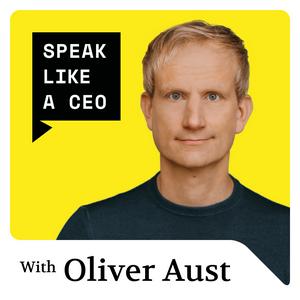
Obtenha a aplicação gratuita radio.pt
- Guardar rádios e podcasts favoritos
- Transmissão via Wi-Fi ou Bluetooth
- Carplay & Android Audo compatìvel
- E ainda mais funções
Obtenha a aplicação gratuita radio.pt
- Guardar rádios e podcasts favoritos
- Transmissão via Wi-Fi ou Bluetooth
- Carplay & Android Audo compatìvel
- E ainda mais funções


SPEAK LIKE A CEO
Leia o código,
descarregue a aplicação,
ouça.
descarregue a aplicação,
ouça.




